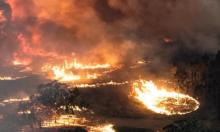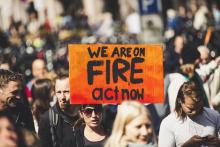January 7th 2020
The global aviation industry has started burning jet fuel like there is no tomorrow. Its climate pollution is rocketing upward. And hoped-for "solutions" like biofuels and electric planes are being buried by the rising flood of emissions. In response, a growing number of climate-concerned people, including the world's most famous climate champion, Greta Thunberg, are advocating for less flying.








